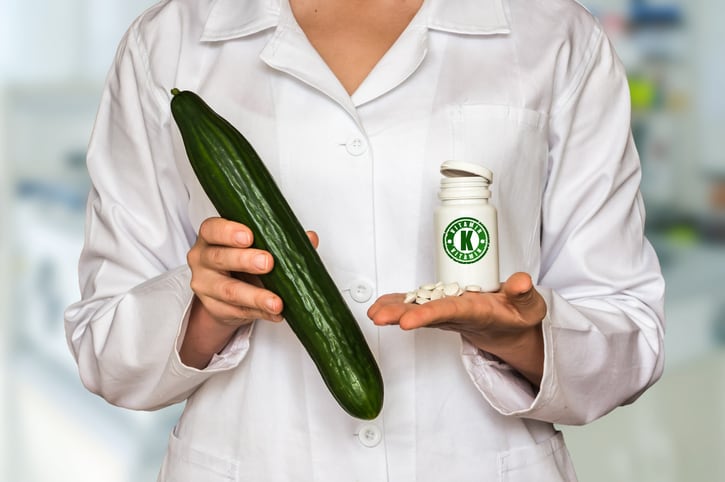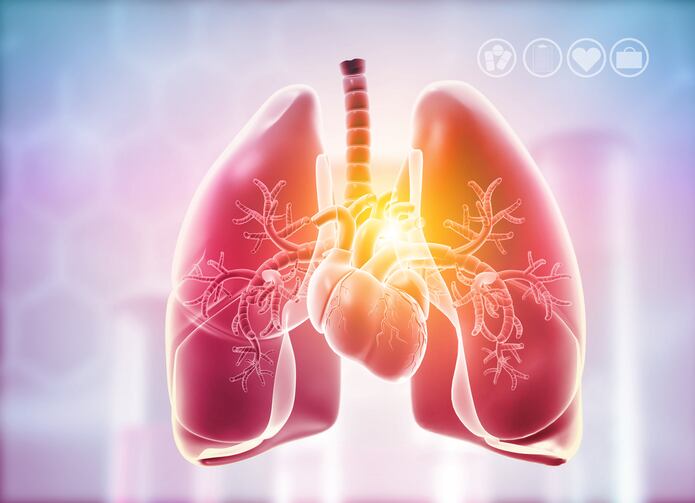Vitamin K produced by certain types of bacteria that colonize the gut could also give bones a boost, according to new research.
Researchers Kyla Shea of the Vitamin K Laboratory at the USDA's Human Nutrition Research Center on Aging (HNRCA) at Tufts University and Chris Hernandez of Cornell University's Sibley School of Mechanical and Aerospace Engineering teamed up to study the impact of vitamin K on bone health.
Vitamin K: The lost nutrient
Hernandez contacted the Vitamin K Laboratory after coming across 2017 research that involved modified gut microbiomes of mice. The research found decreased bone strength but unchanged bone density in the mice. Hernadez said he found that vitamin K had often been associated with fracture risk, but not bone density.
"The HNRCA is the perfect place to research this question. Not only does it have the world's experts on the biochemistry of vitamin K, but it also has unique facilities that make it possible to manipulate the form of the vitamin that is involved here and to monitor the process," said Hernandez.
Vitamin K and the gut
Shea explained that most of the vitamin K we consume is from green vegetables, but the gut bacteria synthesize a different form of it. This different form of vitamin K could be affecting bone strength, although how is yet to be determined.
"Many clinical trials with vitamin K measure bone mineral density outcomes, but there may be links with bone strength independent of density," Shea said. "Vitamin K is an enzymatic cofactor that's required for certain proteins to function. One of these, osteocalcin, is the predominant non-collagenous protein in bone."
Osteocalcin is a vitamin K-dependent protein produced by osteoblasts. It forms a delicate, string-like material inside the mineralized portion of the bone. It is the most important non-collagen protein in the bone matrix and helps make it less brittle.
Hernandez said there are currently a number of treatments for osteoporosis that focus on improving bone mineral density, however, treatments for improving bone matrix quality are lacking.
"What if we could change the gut microbiome so it makes more vitamin K, which could give people those benefits without having to eat more kale or take a regular vitamin supplement?"
Hernandez said their research at Tufts is going to be key in making microbiome therapies work, adding, "The microbiome is an exciting new arena with a lot of potential for new treatments, and a lot of that is the interaction with nutritional components.”
Hernandez and Shea's collaboration is published in the journal BONE. They are also applying for a grant from the National Institutes of Health to conduct further research to confirm that vitamin K is indeed behind the bone changes in mice with modified gut microbiomes.
Source: Bone
Volume 127, October 2019, doi.org/10.1016/j.bone.2019.06.010
“The microbial metagenome and bone tissue composition in mice with microbiome-induced reductions in bone strength”
Authors: J. Guss et al.




